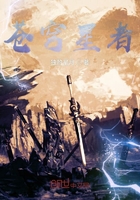The majority of historians have adopted this rationalist conception of the Jacobin mind, and Taine fell into the same error.It is in the abuse of rationalism that he seeks the origin of a great proportion of the acts of the Jacobins.The pages in which he has dealt with the subject contain many truths, however, and as they are in other ways very remarkable, Ireproduce the most important passages here:--``Neither exaggerated self-love nor dogmatic reasoning is rare in the human species.In all countries these two roots of the Jacobin spirit subsist, secret and indestructible....At twenty years of age, when a young man is entering into the world, his reason is stimulated simultaneously with his pride.In the first place, whatever society he may move in, it is contemptible to pure reason, for it has not been constructed by a philosophic legislator according to a principle, but successive generations have arranged it according to their multiple and ever-changing needs.It is not the work of logic, but of history, and the young reasoner shrugs his shoulders at the sight of this old building, whose site is arbitrary, whose architecture is incoherent, and whose inconveniences are obvious....The majority of young people, above all those who have their way to make, are more or less Jacobin on leaving college....
Jacobinism is born of social decomposition just as mushrooms are born of a fermenting soil.Consider the authentic monuments of its thought--the speeches of Robespierre and Saint-Just, the debates of the Legislative Assembly and the Convention, the harangues, addresses, and reports of Girondists and Montagnards.
Never did men speak so much to say so little; the empty verbiage and swollen emphasis swamp any truth there may be beneath their monotony and their turgidity.The Jacobin is full of respect for the phantoms of his reasoning brain; in his eyes they are more real than living men, and their suffrage is the only suffrage he recognises--he will march onward in all sincerity at the head of a procession of imaginary followers.The millions of metaphysical wills which he has created in the image of his own will sustain him by their unanimous assent, and he will project outwards, like a chorus of triumph and acclamation, the inward echo of his own voice.''
While admiring Taine's description, I think he has not exactly grasped the psychology of the Jacobin.
The mind of the true Jacobin, at the time of the Revolution as now, was composed of elements which we must analyse if we are to understand its function.
This analysis will show in the first place that the Jacobin is not a rationalist, but a believer.Far from building his belief on reason, he moulds reason to his belief, and although his speeches are steeped in rationalism he employs it very little in his thoughts and his conduct.
A Jacobin who reasoned as much as he is accused of reasoning would be sometimes accessible to the voice of reason.Now, observation proves, from the time of the Revolution to our own days, that the Jacobin is never influenced by reasoning, however just, and it is precisely here that his strength resides.
And why is he not accessible to reason? Simply because his vision of things, always extremely limited, does not permit of his resisting the powerful and passionate impulses which guide him.
These two elements, feeble reason and strong passions, would not of themselves constitute the Jacobin mind.There is another.
Passion supports convictions, but hardly ever creates them.Now, the true Jacobin has forcible convictions.What is to sustain them? Here the mystic elements whose action we have already studied come into play.The Jacobin is a mystic who has replaced the old divinities by new gods.Imbued with the power of words and formulae, he attributes to these a mysterious power.To serve these exigent divinities he does not shrink from the most violent measures.The laws voted by our modern Jacobins furnish a proof of this fact.
The Jacobin mentality is found especially in narrow and passionate characters.It implies, in fact, a narrow and rigid mind, inaccessible to all criticism and to all considerations but those of faith.
The mystic and affective elements which dominate the mind of the Jacobin condemn him to an extreme simplicity.Grasping only the superficial relations of things, nothing prevents him from taking for realities the chimerical images which are born of his imagination.The sequence of phenomena and their results escape him.He never raises his eyes from his dream.
As we may see, it is not by the development of his logical reason that the Jacobin exceeds.He possesses very little logic of this kind, and therefore he often becomes dangerous.Where a superior man would hesitate or halt the Jacobin, who has placed his feeble reason at the service of his impulses, goes forward with certainty.
So that although the Jacobin is a great reasoner, this does not mean that he is in the least guided by reason.When he imagines he is being led by reason it is really his passions and his mysticism that lead him.Like all those who are convinced and hemmed in by the walls of faith, he can never escape therefrom.
A true aggressive theologian, he is astonishingly like the disciples of Calvin described in a previous chapter.Hypnotised by their faith, nothing could deter them from their object.All those who contradicted their articles of faith were considered worthy of death.They too seemed to be powerful reasoners.
Ignorant, like the Jacobins, of the secret forces that led them, they believed that reason was their sole guide, while in reality they were the slaves of mysticism and passion.
The truly rationalistic Jacobin would be incomprehensible, and would merely make reason despair.The passionate and mystical Jacobin is, on the contrary, easily intelligible.
With these three elements--a very weak reasoning power, very strong passions, and an intense mysticism--we have the true psychological components of the mind of the Jacobin.













